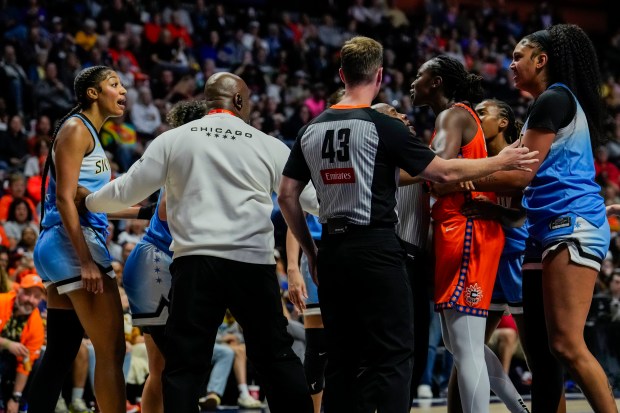The Bring Chicago Home referendum has been defeated, according to the Associated Press, which called the race after a fresh tally of mailed ballots left those in favor of the proposal 21,000 short.
The measure, which sought to raise the city’s real estate transfer tax on property purchases above $1 million, had survived several setbacks since advocacy groups first coalesced behind the idea in 2018. The latest was a weeks-long legal fight brought by legal interests heading into Election Day that nearly sidelined the vote entirely.
Both Mayor Brandon Johnson and the Bring Chicago Home campaign already acknowledged a possible loss the morning after Election Day, when the yes vote was trailing 46.3% to 53.7%.
Johnson vowed to punch back, describing opponents as cowards and pledging to continue pursuing a progressive agenda, saying organizers “get stronger, and whatever we didn’t get the first time, we’ll get even more the next time.”
Real estate interests who brought that lawsuit took a victory lap while encouraging Johnson’s administration to work toward other solutions to address homelessness.
“Now that Mayor Johnson’s real estate tax increase has been rejected by voters, we reissue our repeated calls for the City to convene all stakeholders to develop solutions that move Chicago forward,” Farzin Parang, executive director of the Building Owners and Managers Association said in a statement. “Not only do we need to address the critical challenge of homelessness, we also need to develop a plan to rebuild our downtown and bolster our neighborhoods.”
As candidate, Johnson had touted Bring Chicago as one of three 100-day promises. The measure — which survived an eleventh-hour legal challenge from real estate interests — was poised to become the first win from his bold economic agenda that he said would finally make wealthy residents and corporate interests pay their fair share.
Its defeat was a stinging loss for the mayor who tied the initiative closely with his progressive platform, and signals brewing discontent from voters over how his progressive coalition has governed the nation’s third-largest city.
Though Johnson and Bring Chicago Home supporters could try again via the state legislature or a similar effort on another ballot, the mayor did not show enthusiasm for either of those pathways Wednesday. The coalition behind the ballot measure did not immediately provide comment Friday evening.
“Rather than the end of Bring Chicago Home, we hope this is the beginning of a fresh climate that stimulates investment in and reduces obstacles to the creation and maintenance of affordable housing,” chief opponent Michael Glasser, President of the Neighborhood Building Owners Alliance said in a statement. “There are vacant lots and empty buildings all across Chicago. We can transform them into homes for hard-working Chicago families, if the City works with us instead of against us.”
aquig@chicagotribune.com
ayin@chicagotribune.com
jsheridan@chicagotribune.com




